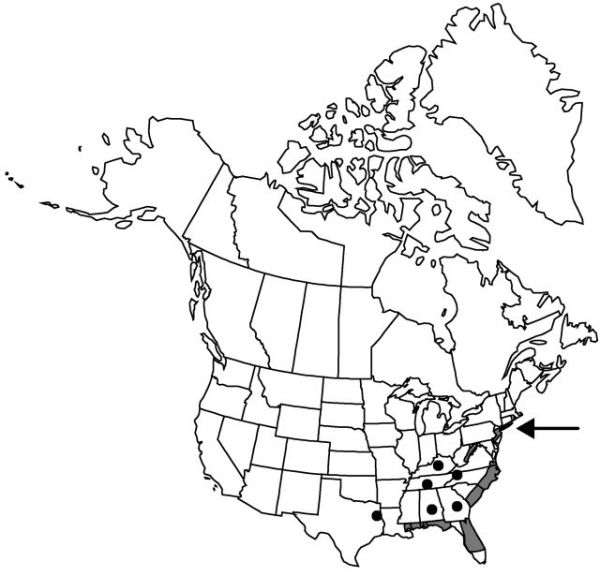Zigadenus densus
Rhodora 42: 254. 1940.
Plants 4–20 dm, from bulbs; bulbs not clumped, tunicate, ovoid, 0.5–2 × 1–2 cm. Leaves: proximal blades 10–50 cm × 2–12 mm. Inflorescences racemose or paniculate, 40–100-flowered, cylindrical, 4–15 × 2.5–5 cm. Flowers: perianth hypogynous, 5–10 mm diam.; tepals persistent in fruit, cream colored to greenish, ovate to elliptic, 3–5 mm, narrowed but not sharply contracted basally; gland 1, obscure; pedicel 1–2 cm, bracts often tinged with red, lanceolate, 2–12 mm. Capsules narrowly conic, 10–20 mm.
Phenology: Flowering mid Mar–Jul.
Habitat: Pine bogs, flatlands
Elevation: 0–1800 m
Distribution

Ala., Del., Fla., Ga., Ky., La., Miss., N.J., N.Y., N.C., S.C., Tenn., Tex., Va., W.Va.
Discussion
As treated here, Zigadenus densus includes Z. leimanthoides (W. W. McDearman 1984). These two entities are distinct in some parts of the range, but intergrade in size, inflorescence morphology, and flowering time in the Gulf coast region. The size of the plant (determined by age and environment) seems to affect inflorecence morphology, smaller plants bearing simple racemes and larger plants developing compound ones. Plants in more mountainous habitats develop paniculate inflorescences. Recognition of the two taxa at the varietal level may eventually be desirable.
Selected References
None.
